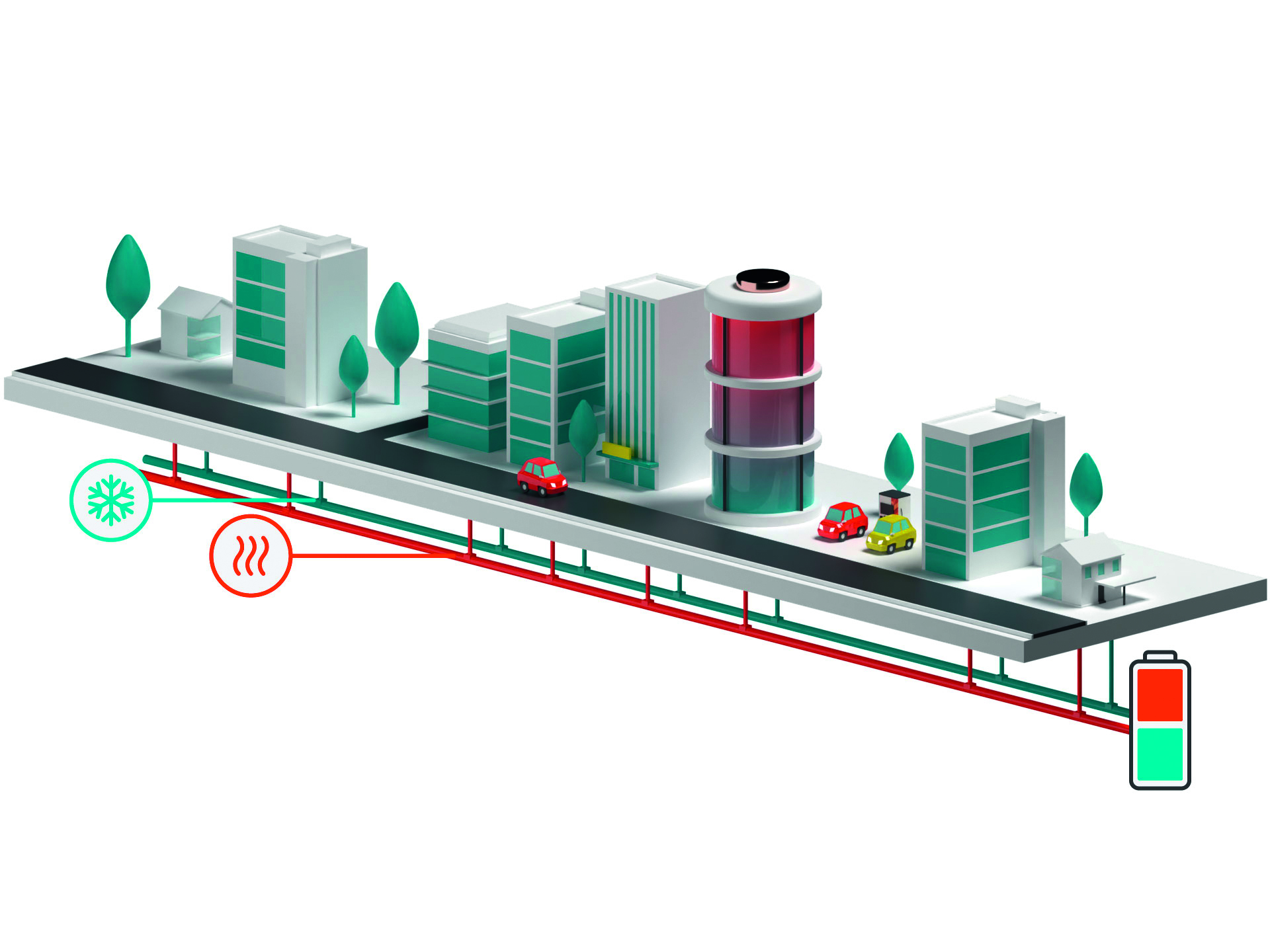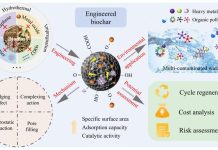Technological expertise and solutions for climate target response is already here, but to unlock the hidden potential in industries and cities, we need clear priority setting by politics, orchestrated deployment, and significant public funding (CAPEX and OPEX) backed by an eased regulatory framework
The political discussion about necessity and accessibility of decarbonisation is gaining momentum. At least since the Paris climate agreement, it has been clear: in the long term, combustion processes can only occur in exceptional cases. Energy is precious and must be used as efficiently as possible. Many solutions for the decarbonisation of cities and industries already exist – further potential is being explored.
The focus of all our activities is to ensure that the Europe-wide climate goal does not remain simple “lip service”.
The entire portfolio of E.ON’s Energy Infrastructure Solutions is geared towards supporting customers, companies and cities in their decarbonisation efforts.
The Net Zero industrial competitiveness
On 16 March 2023, the EU Commission published the Net-Zero Industry Act to preserve industrial competitiveness and reduce dependency on third countries.
This proposal defines strategic technologies, but each of these technologies has a different starting point. The way is clear for solar PV, solar thermal and renewable energies – they must be used wherever possible.
A more connected solution is the use of decentralized heat pumps in district heating systems, also in combination with geothermal solutions. These solutions are more of a systemic nature and need much more support. Above all, it is important to speed up municipal heating planning and approval times for the full decarbonisation of cities.
Additional financial support is needed for test drilling. Extremely high importance is attached to the use of hydrogen via electrolysers and fuel cells, but the additional green energy required is not yet available. In addition, both CAPEX and OPEX costs are extremely high making its economic viability today impossible without public funding.
Consideration of CO2 in the entire value chain
The draft act considers that the climate targets cannot be achieved with CO2 savings alone. Therefore, CO2 storage is increasingly becoming the focus of political discussion.
CCU/S technologies are a very important solution component. For a successful market implementation and scale up, promotion of the complete CCU/S value chains is key. In addition to carbon storage, thermal storage for heating networks and electrical storage offers great potential for increasing efficiency (including applications as a grid booster).

Tightening up the regulatory framework
All these technologies are essential on the journey for the decarbonisation of cities and industries – but not all of them have the same maturity and an existing business case. Hence, the deployment of those solutions needs to be orchestrated and individually supported via (CAPEX and OPEX) funding and an easy regulatory framework. In the communication of the commission, so-called Net-Zero Strategic Projects are introduced.
For selected projects, all approval procedures are to be bundled in a national body and the entire approval process is completed within a maximum of 12 months. This is very welcome.
A key missing piece in this legislation is a large-scale demonstration of innovation in industry and cities.
Measurable emissions reduction results are directly dependent on the engagement of key stakeholders such as utilities, solution providers and contractors. They work close to production and industry to implement needs-based and sustainable solutions on-site.
Heat is a key element for the energy transition
If we look at the heat transition, process heat alone accounts for 40% of energy consumption in industry and commerce (in Germany).
Around half of the heat used in industry is lost unused as waste heat. Above all, the energy transition is a heat transition. The focus should also lie in the sensible reuse of unused heat.
First, it is important to use energy generation methods that are as carbon-free as possible – efficiency first.
Secondly, it must be checked whether system-related energy, mostly in the form of heat, can be recovered or used in another way. Sustainability, costs, security of supply and efficiency are all high on the list of requirements to be met.
An example of new coupled solutions in this segment is the use of waste heat from data centers for supplying local district heating networks. In the past, the temperature levels were too different and using the waste heat was inefficient.
With our E.ON ectogridTM technology, the decarbonisation of cities is possible. E.ON ectogridTM is a complete energy system for heating and cooling that enables the sharing, balancing and storage of energy for entire neighbourhoods and cities and can help achieve zero emissions.
Funding opportunities in municipalities and industry
At the beginning of every transformation process, it is important to demonstrate the capability of new technologies. The promotion of large lighthouse projects is suitable for this. For broader impact, more medium-sized and smaller projects must now also be funded.
Municipalities and industry closely monitor the various funding opportunities (like horizon framework, Innovation Fund, Life, CEF,) offered by the EU.
However, it has been repeatedly shown that these calls are extremely oversubscribed (i.e., the probability of funding is low) and require a lot of effort in the preparation of application documents.
The funding should always be focused on the climate impact. It is necessary that service providers and contractors are also included in the general conditions.
We need to move away from the fear of climate change towards understanding that climate change is an opportunity – especially for growth and prosperity. We expressly welcome the EU’s activities to achieve the climate goals. We are convinced that the transformation can only succeed with intelligent solutions that are at the same time decentralised, future-proof, and above all, efficient.
At the Energy Infrastructure Solutions unit of E.ON, we are working to provide industries with tailored energy solutions, and the decarbonisation of cities, that meet these requirements – whether it’s heating, cooling, power generation, or energy efficiency.
Strong partnerships can bring ecology and economy together and thus create unimagined joint opportunities – benefit from unconventional ideas, amazing synergies, and lower energy costs.

This work is licensed under Creative Commons Attribution-NonCommercial-NoDerivatives 4.0 International.











